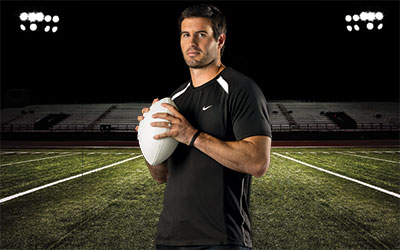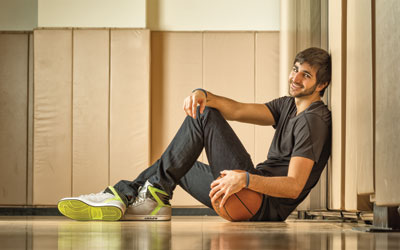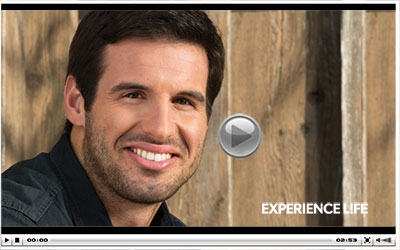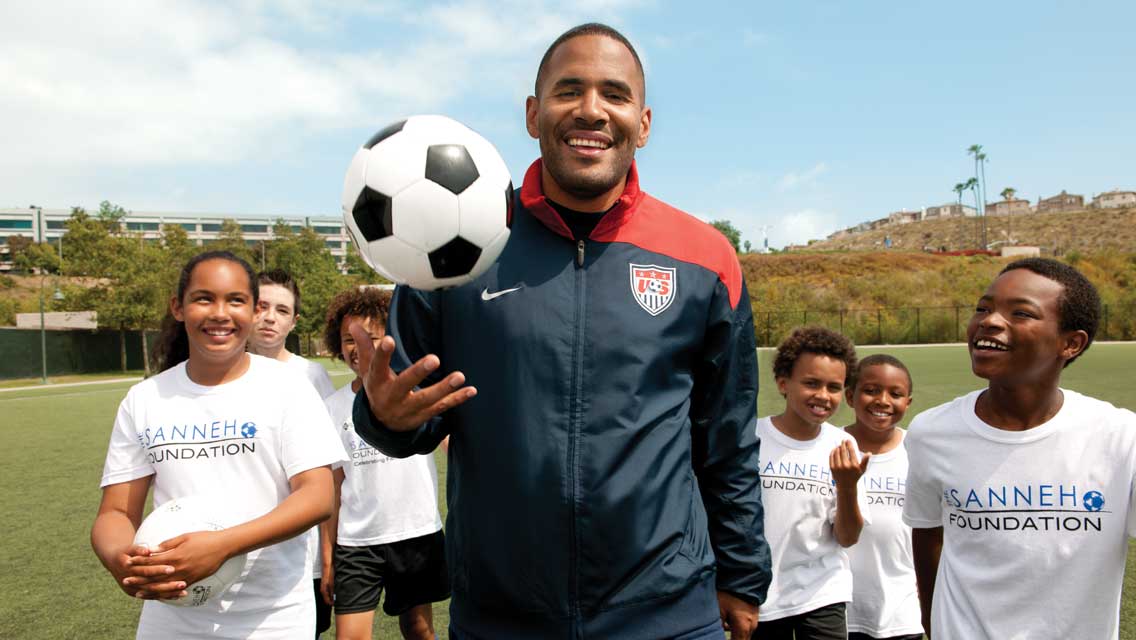Minnesota Vikings fans are learning to love Christian Ponder. Last year, in the quarterback’s second NFL season, he threw for 2,935 yards and 18 touchdowns. In the team’s second regular-season match-up against the division-leading Green Bay Packers, Ponder played the best game of his professional career and helped propel his team to the playoffs.
Yet, Vikings fans can’t help but worry over Christian Ponder. During his rookie year, the 12th overall draft pick threw 13 touchdowns, but racked up 13 interceptions. And while last season ended well, Ponder still threw 12 picks, including a game loser in the first regular-season game against the archrival Packers.
The Dallas native, who had a season-ending shoulder injury while playing for Florida State in 2009, also missed last year’s big playoff game due to injury, so he remains untested in post-season play, and some insiders question his durability. Now, with the Vikings’ off-season acquisition of veteran quarterback Matt Cassel, many sports scribes believe 2013 is a make-or-break year for Ponder.
“You get used to [the critics],” says the 25-year-old. “I put a lot of pressure on myself to be the best I can. That way, other people’s criticisms are not as tough on me as I already am on myself.”
Get better or go home. That’s how the game is played. And Ponder loves it.
“I like being the guy who has the ball in his hands every play and who has a good chance of winning or losing the game and who is in control of that pretty much at all times. It’s fun for me.”
EL | When it became clear that a professional football career was possible for you, did you ever doubt your path?
CP | I was a baseball player as a kid and my dreams were always to play major league baseball rather than football. After my freshman year in high school, though, I had to put all of my focus into just one sport, and I ended up choosing football.
EL | In any sport, winning and losing are the ultimate yardsticks of success and failure. How do you gauge your own success beyond winning and losing?
CP | I think the biggest thing is dissecting each play of each game and breaking it down into either a positive play or a negative play. Did I make the right read? Did I make the right call? Did I make a good throw? There are so many factors that go into whether a play is successful or not. With each game you want to see a progression toward more good plays. I want to progress toward having more good plays than bad plays every time I’m on the field.
EL | How do you deal with that performance pressure?
CP | Football is a game of reaction, especially the quarterback position. That is why a week’s preparation is so important — studying your film, studying your defense and your own plays — so when you get on that field you can just react in a split second. It is really important that you just go out there and not think too much.
EL | You’ve spent time, both in college and with the Vikings, recovering from injuries. What has your time on the sidelines taught you about the game and about yourself?
CP | You definitely have to learn how to be patient. I had shoulder surgery my junior year in college, and I had to do four hours of rehab every day, and I saw very little progress between each day. Having to sit on the sidelines and watch everyone else play while you have no control is very frustrating. I think you really learn about your love for the game when you are sitting there on the sidelines and missing out. It reenergizes you. When you get back out there you are determined to play even better.
EL | You’re in front of the media a lot and seem really comfortable. Is it true that you were a shy kid and that you worked as a telemarketer in college to overcome your social anxiety?
CP | It was the summer of my freshman year in college and I didn’t have a whole lot of money, so I needed a job. I also did not like talking to people and I figured that had to change. Being the quarterback of the team, I had to communicate with my teammates. The job was good for overcoming my fear because I had to call strangers I’d never talked to before in my life, have a conversation with them and try to sell them a product. It was hard at first and I was nervous. The first few days of having to call people, I would have sweaty palms as I was dialing up the numbers. I would be so excited if no one answered the phone. Eventually I got over being nervous. I think the whole experience helped me break out of my shell.
EL | What is your advice for someone who wants to change some aspect of his or her life, or get better at something, but doesn’t know where to start?
CP | I would say just go for it. Have you ever seen the movie We Bought a Zoo?
EL | No, but I love the star of that movie, Matt Damon.
CP | In that movie, his character talks about how all it takes is “20 seconds of courage.” I really liked that. In regard to changing something, obviously, first you have to recognize what the issue is. Then, all you need is 20 seconds of courage. For me, it took 20 seconds to pick up the phone and call someone to start that change — having 20 seconds of courage and just going for it.
I was scared of embarrassing myself by saying something stupid or just not being able to hold a conversation. My biggest fear was what people thought of me. But you know what? Who cares what people think of you? It doesn’t matter. Obviously, if something needs to change, you are going to benefit from that change, and 20 seconds of courage is that first step.
EL | What do you do in the off-season?
CP | I love to play golf. I love to fish and be outdoors. Other than that, football is pretty much a year-round sport. If you are not doing something training-wise, you are probably not getting any better; in fact, you are probably getting worse. You always have to be focused on football in some way.




This Post Has 0 Comments